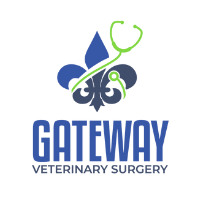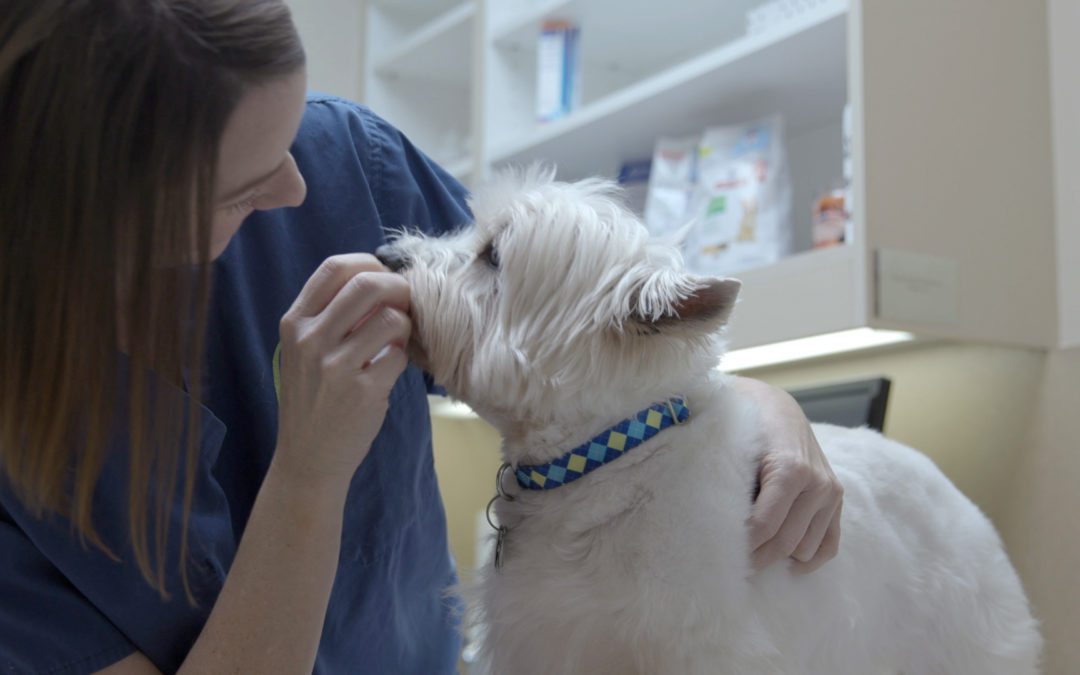We are proud to announce that Dr. Jennifer Wardlaw is now certified in Low Stress Handling, and Gateway Veterinary Surgery is proud to create, practice, and project a low-stress environment during the care of our patients.
Every veterinary hospital can aim to become a low-stress environment, but with a certification in Low Stress Handling®, Dr. Wardlaw can proudly say that she has immersed herself in the course to fully understand how to create a low-stress environment and handle animals in a less stressful manner.
A large portion of Low Stress Handling® relies beyond how to make improvements to the hospital’s design, how to prepare for the patient prior to a visit, and how to introduce the use of tools and sedative agents in a less stressful manner. Instead, this course and certification focus more on the development of hands-on skills. Some of these hands-on skills include:
- Recognizing the overt and subtle signs of fear and anxiety in dogs and cats and identifying the common mistakes people make when approaching and greeting pets that make the animals more fearful or aggressive. Learning how to approach and handle pets in a relaxed, non-threatening manner.
- Learning how the sights, sounds, smells, and surfaces in your practice may be increasing the stress in your patients. Discovering ways to create a calmer, safer, and more secure environment.
- Learning five methods for controlling the rear end and seven for controlling the front end in dogs. Determining which direction of movement (forward, back, right, left, up, and down) each hold controls. Evaluating which restraint hold is best for a given dog and procedure.
- Understanding how every interaction – how you approach, pick animals up, move them from place to place, or restrain them – affects the animal’s perception of you and their willingness to cooperate. Learning how to position your body and adjust your movement to provide the direction and guidance the animal needs.
Benefits of being certified in Low Stress Handling®
- Improved client confidence
-
- It will allow staff to project that they are both caring and skilled, rather than projecting a desire to rush through their visits to earn more money.
- Lower anxiety for staff and clients
-
- Clients know their pets will be handled in a caring and calm manner. Staff know they won’t have to struggle since they understand how to get patients to comply willingly to procedures.

